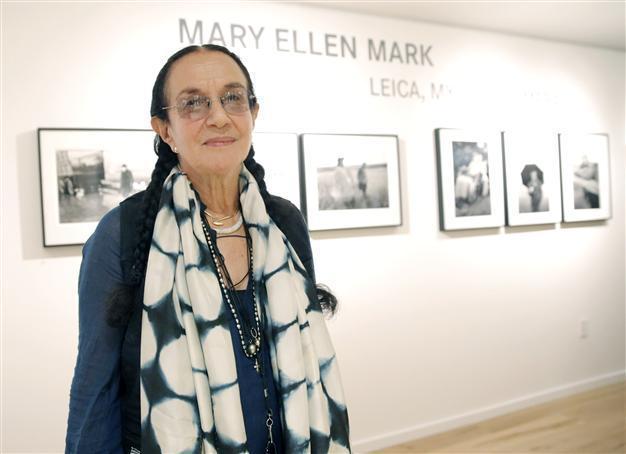OBIT: In memory of Mary Ellen Mark
Delizia Flaccavento – NEW YORK

AP Photo
One of the most respected and influential documentary photographers to date, Mary Ellen Mark, died on May 25 in New York. She was 75. For fifty years, she showed the rare gift of making all her assignments, the given ones and the self-generated projects, very personal and deep. “I worked on them because they were interesting to me,” she said, when I had the honor to interview her a couple of years ago.The last few years of her life were a race against time to complete the projects she wanted to do using the tools she wanted to use before it was too late. This was the case of her latest book, titled “Prom,” which was shot with a Polaroid 20x24 Land Camera and published in 2012 by Getty Publications. There are only five 20x24 Polaroid cameras in the world. Polaroid discontinued the film while Mark was working on the project. She bought the last stock of traditional Polaroid black and white paper and for the very last photos she used handmade film made using original Polaroid components and production equipment.
Mark always refused to move to digital. “Photography is about the content. Not about the tools. I’m not against digital photography, but I have been using analog for so long… Analog photography and digital photography are different and I strongly believe that people should learn both,” she said. Stubbornly refusing the speediness of digital to stick with the thoughtful slowness of film meant receiving fewer and fewer magazine assignments, as the industry’s visual voracity could not afford to stop and wait, not even for the sensitivity, commitment and talent of someone like Mark.
Not many people know that Mark’s photographic career began in Turkey in 1965, when she traveled around the country on a Fulbright scholarship. Her photos “Beautiful Emine,” a portrait of a nine-year-old girl from Trabzon wearing a very babyish dress and yet acting like an adult in front of the camera, and “The man who won the moustache contest,” taken in Istanbul, helped jump-start her career and were both included in her first book, “Passport,” published in 1974.
When I asked her about her legacy, Mark, who was also a very dedicated teacher and enthusiastically shared her talent and experience in a number of workshops, said without hesitation, “Making pictures that people remember, that mean something.” Through simple frames charged with layers of meaning, Mark documented the domain of reality in a compassionate yet lighthearted way. Her unfading devotion to the photographic medium in its classic form, together with her deep interest and respect for her subjects, should be a guiding light in our visually polluted times, where billions of photos are shot daily and, through Instagram and the like, a good, quick photo is not denied to anyone. After all, anybody can take a good photo, but what is hard is to make a great one and Mark’s remarkable body of work, built on talent, hard work and love, is a good reminder of what great pictures look like.
















